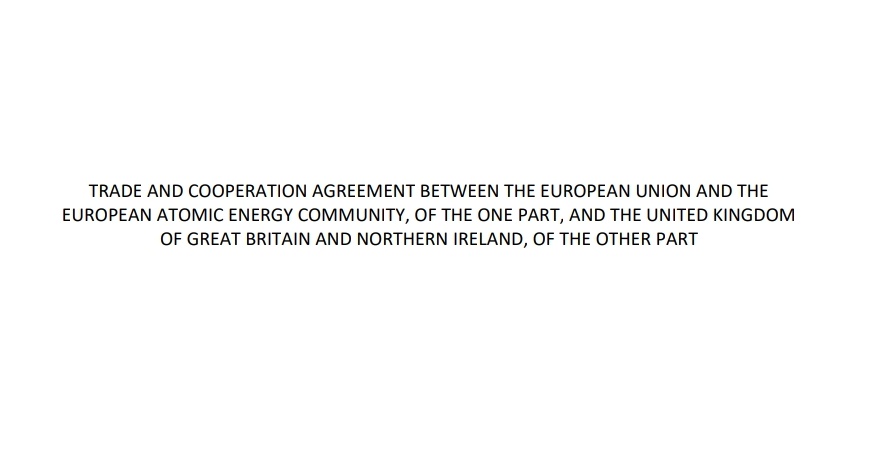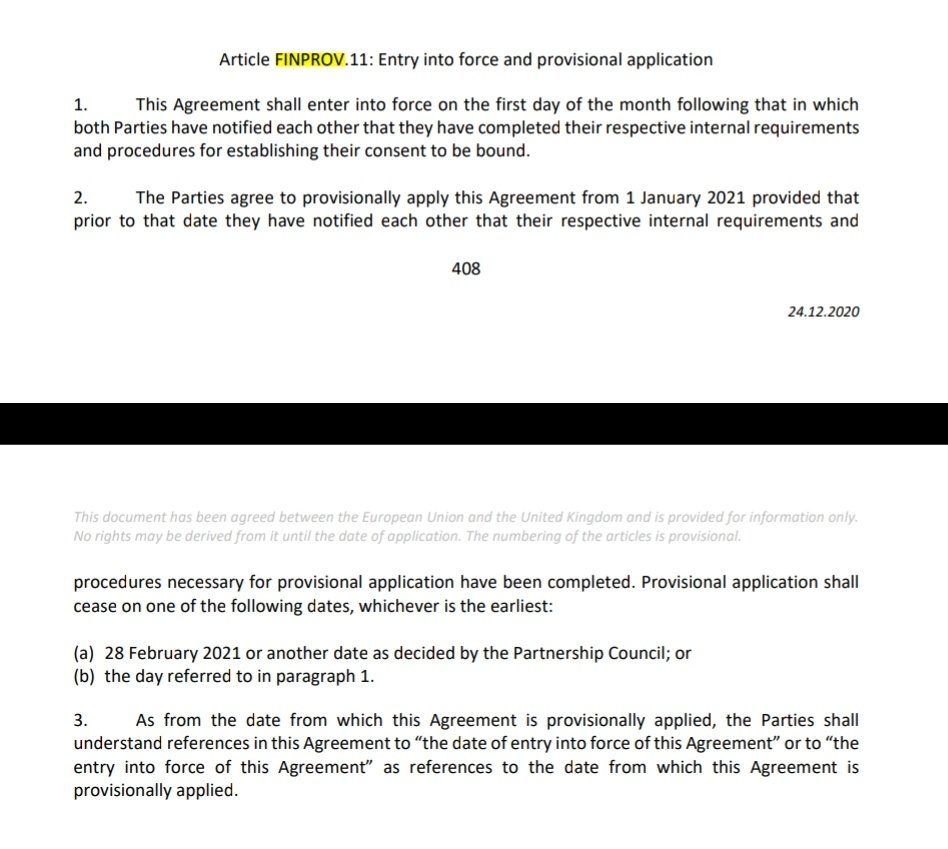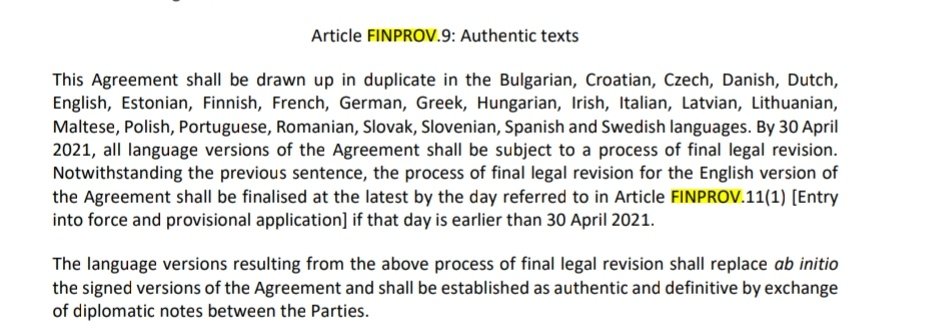
As the transition period ends, the #BrexitDeal applies from tomorrow. But there's also a parallel significant legal change - most of the rest of the withdrawal agreement starts to apply. A thread on the legal issues in the rest of that agreement.
The citizens' rights provisions of the withdrawal agreement (on EU citizens who moved to the UK, and UK citizens who moved to the EU, before the end of the transition period) start to apply.
Annotation and detailed analysis of those provisions here: eulawanalysis.blogspot.com/2019/10/analys…
Annotation and detailed analysis of those provisions here: eulawanalysis.blogspot.com/2019/10/analys…
After today, UK citizens newly moving to the EU, or EU citizens newly moving to the UK, are in principle governed by national law (partly harmonised by the EU, on the EU side).
However, the #BrexitDeal contains some provisions on visas for service providers.
However, the #BrexitDeal contains some provisions on visas for service providers.
The #BrexitDeal also refers to the matching unilateral decisions of the EU and UK to waive a visa requirement for short tourist visits. Analysis of the EU law on that issue here: eulawanalysis.blogspot.com/2019/04/travel…
UK citizens resident in the EU on the basis of the withdrawal agreement (or who move to EU in future) should be covered by the EU law on long-term resident non-EU citizens, which provides for a limited form of mobility between Member States. Analysis here: eulawanalysis.blogspot.com/2018/12/uk-cit…
Next, a big chunk of the treaty on 'separation provisions' - ie what happens to pending European Arrest Warrants - starts to apply. For a number of issues (for instance, trade in goods and extradition) the #BrexitDeal will start to apply to any new transactions, requests etc.
The financial contributions part of the withdrawal agreement - which already applied during the transition period (ie the UK has already made a chunk of the contributions it provides for) - continues to apply as regards remaining contributions.
What if the EU and UK argue about this agreement? In place of the full jurisdiction of the CJEU, the arbitration rules in the withdrawal agreement start to apply. Some limited jurisdiction of the CJEU continues.
Analysis of dispute settlement issues here: eulawanalysis.blogspot.com/2019/10/analys…
Analysis of dispute settlement issues here: eulawanalysis.blogspot.com/2019/10/analys…
There are broader questions about breach and termination of the agreement, which I discussed here - eulawanalysis.blogspot.com/2020/02/how-do…
Note that issues of breach and termination are quite different in the #BrexitDeal, but they are separate treaties, ie ending the latter doesn't end the WA.
Note that issues of breach and termination are quite different in the #BrexitDeal, but they are separate treaties, ie ending the latter doesn't end the WA.
But for both the withdrawal agreement and the 'Brexit deal' there's a common misunderstanding that breaching the treaty automatically leads to its termination. That's incorrect as regards both treaties (and as regards international treaties in general).
Finally, the withdrawal agreement protocols. The protocol on Cypriot bases starts to apply; the protocol on Gibraltar mostly ends (we'll see if anything is agreed to replace it).
The NI protocol mostly starts: remember it's been supplemented by implementing measures this month.
The NI protocol mostly starts: remember it's been supplemented by implementing measures this month.
My overview of the whole withdrawal agreement here: eulawanalysis.blogspot.com/2019/10/analys…
And of the transition period here: eulawanalysis.blogspot.com/2019/10/analys…
More on the #BrexitDeal soon... //
And of the transition period here: eulawanalysis.blogspot.com/2019/10/analys…
More on the #BrexitDeal soon... //
• • •
Missing some Tweet in this thread? You can try to
force a refresh







